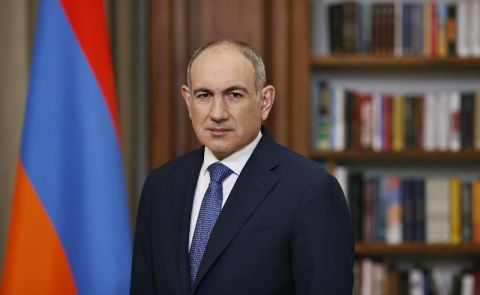
Nagorno-Karabakh: Macron’s statement; Aliyev's speech
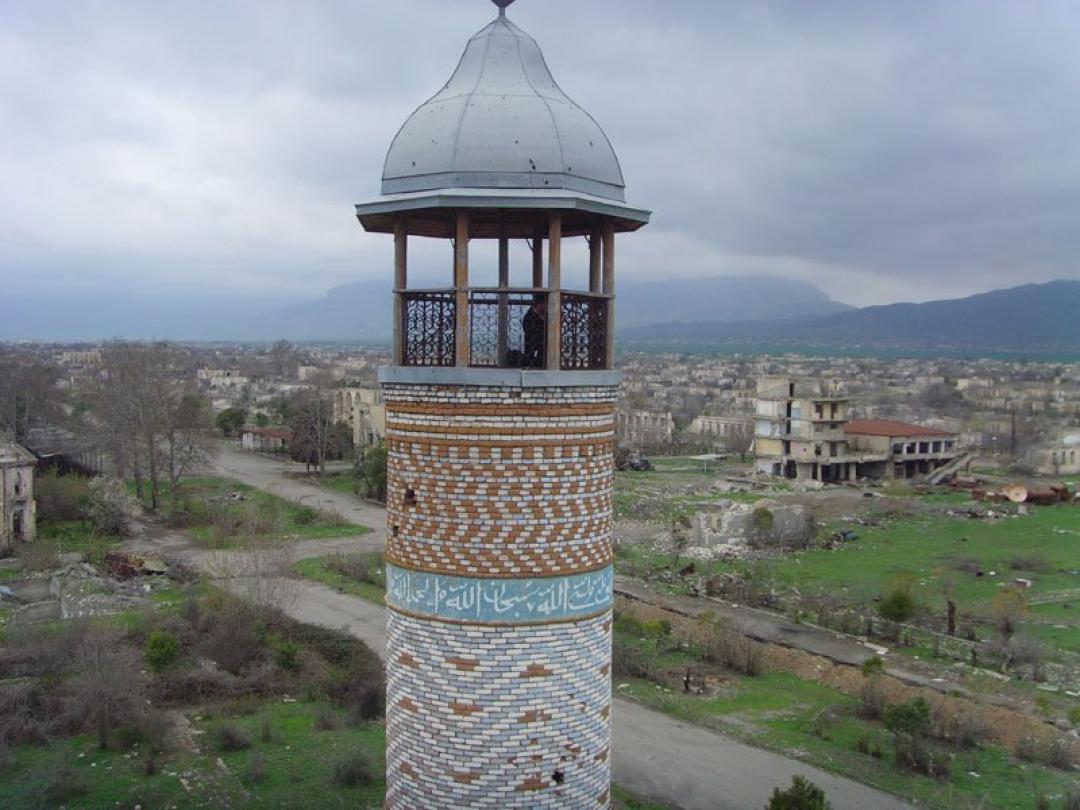
On 19 November, the Armenian Prime Minister Nikol Pashinyan held a telephone conversation with French President Emmanuel Macron where they discussed the issue of Nagorno-Karabakh.
Both sides stressed the need to resume the work of the OSCE Minsk Group Co-Chairs in its full format. They referred to the issue of ensuring safe repatriation for tens of thousands of people who have fled their homes.
“The end of the fighting should now allow the resumption of good faith negotiations in order to protect the population of Nagorno-Karabakh and ensure the return of tens of thousands of people, who have fled their homes in recent weeks, in good security conditions,” read the official statement of the French President’s office.
Macron also called for “strong measures to protect the religious and cultural heritage of this region.” “France is ready to provide, within the framework of the UNESCO, with the Alliance for the Protection of Heritage in Conflicts, its expertise and full support for the protection of the cultural and religious heritage of Nagorno-Karabakh and its surroundings,” the statement further emphasised, referring to the Armenian churches on territory regained by Azerbaijan during and after the war.
Macron’s recent statements were negatively received in Azerbaijan, particularly after the announcement that the French Senate is going to put the resolution on the recognition of Nagorno-Karabakh to a vote (Caucasus Watch reported). “The end was put to the Nagorno-Karabakh conflict by the joint statement signed by the President of Azerbaijan (Ilham Aliyev), the Prime Minister of Armenia (Nikol Pashinyan) and the President of Russia (Vladimir Putin) on 10 November. The Azerbaijani Army entered Agdam today based on the provisions arising from that statement. This statement was supported by a number of regional countries. Remind that France displayed a non-objective stance from the first days and put forward a biased position. And a few days ago, the leaders of the main 5 factions in the French senate put forward a resolution regarding recognition of the so-called formation established on the Azerbaijani lands. The head and members of the inter-parliamentary group of friendship between Milli Mejlis and France, as well as the international relations committee of Milli Mejlis should keep this issue front and centre,“ stated the speaker of Azerbaijan’s parliament Sahiba Gafarova. It was also reported that a protest action with the participation of a number of Azerbaijani public organisations was held in front of the French Embassy in Baku in that regard.
The spokesperson of Russia’s Foreign Ministry Maria Zakharova expressed her concerns regarding the reserved stance of the Western countries towards the signing of the agreement. “We (Russia) have noticed attempts to omit or distort information related to the implementation of the trilateral agreement on Nagorno-Karabakh regulation. We witness a reserved reaction, to say the least, to this statement, which led to the implementation of concrete provisions stipulated in it. Why so? A month or a month-and-a-half ago, everyone wanted a ceasefire, everyone was waiting for it. And now the ceasefire has been established and is being maintained. We do not see a full-fledged reaction that the West is capable of, as we know, when they choose to react on a broad front, you can learn about and hear it anywhere,” she stated.
Zakharova pointed out that the agreement had not been met with excitement, adding that there was no “desire to welcome and comment on the statement, encourage the sides to implement it and note Russia’s role as a mediator.“ “In many official statements made by foreign ministries of western states, Russia’s role is not mentioned at all, as if the statement were bilateral. It is not even mentioned that the statement is trilateral. It is surprising, but it’s the way it is. As if the positive and constructive role of our country should not be represented in international affairs in any shape or form,” she added.
Armenia’s Ministry of Foreign Affairs released a statement, saying that the Azerbaijani forces were destroying Armenian historical-cultural and religious sites and monuments even after the ceasefire ended. The Azerbaijani authorities denied these statements.
Meanwhile, Azerbaijan’s President Ilham Aliyev delivered another passionate address to the nation on the occasion of handing over the territory of the Aghdam region to Azerbaijan’s control. “The people of Azerbaijan probably remember me saying repeatedly in the last three to four years that the world is changing, relations are changing, international law does not work, the factor of strength comes to the fore, the principle of ‘might is right’ prevails. All this can be seen in my speeches. Because I correctly analyse the international situation. I do not want to say that we should follow this path. No. Our path is the path of justice and international law. But I said that the factor of strength comes to the fore, and we must be ready for that. Preparations were going on for all these years, both in the economic sphere and in the field of international relations, first of all, in the field of army building. We gathered strength, hit at the right moment and caved the enemy’s head. We crushed it so hard that they will remember this forever. We left a mark on their head,” Aliyev stated.
“We have not only restored our territorial integrity; we have also broken the back of Armenian fascism. We have saved the region from Armenian fascism; we have saved the world from Armenian fascism. No-one can stand in front of us or put forward conditions to us. In the early days of the war, representatives of the countries that wanted to impose conditions on us, to threaten us, to slander us, some Western countries – they received our harsh response. They saw that we were not a country that bows to others. Neither am I a leader who accepts everything, any word. I have responded to them with a vengeance and will continue to do so if necessary. Therefore, if Armenian fascism rises again, if any provocation is committed against us, they will receive 10 times more and no-one can stop us,“ he further emphasised.
Aliyev also stated that the regional dynamics in the Caucasus would change after this war. “The current geographical situation in the Karabakh region, of course, has greatly increased our capabilities. Just look at the map, let everyone see who has what opportunities. There is an internal crisis in Armenia now. This is natural. Because a military defeat, such a shameful defeat can, of course, lead to turmoil in any country. Therefore, if sober-minded forces come to power in Armenia now, after the crisis, we are ready to establish normal relations with such sound forces. But we have nothing to do with the executioners, those who shed the blood of the Azerbaijani people,” he said.
Like Zakharova, Aliyev also made critical remarks towards the western countries and international organizations in particular. He harshly criticised the Council of Europe, the EU parliament and the western NGOs for not addressing the issue of arrests of political figures in Armenia. When speaking on reports of Armenia’s media that 90 000 Armenian’s fled Nagorno-Karabakh during the war, Aliyev dismissed such a statement as a lie. “A maximum of 60,000-65,000 people lived in Nagorno-Karabakh and our occupied lands before the Second Karabakh War. Where did we learn that? We have operational information. We have many sources of information in that region, and this is one of the reasons for our success. We knew exactly and we know what is happening there now, where the head of their junta is hiding. He was probably aware too that we knew that. We will expose these lies about the number of refugees, and even if there were refugees, it is not our fault. We did not fight against the civilian population,“ Aliyev highlighted.
In the meantime, the UN agencies visited Barda, Agdam and Agjabedi regions, as well as the places of residence of temporary internally displaced people and communities suffering from the conflict to assess the damage the war had caused. It was also reported that Russia officially opened the Interagency Center for Humanitarian Reaction in Nagorno-Karabakh, tasked with facilitating the return of the refugees and reconstruction of civilian infrastructure damaged during the war. At the time of reporting, 1,235 Armenians returned to Karabakh’s capital Stepanakert/Khankandi, bringing the total number of returned persons over 4000.
Azerbaijan’s Prosecutor General appealed to the Russian authorities against Russian citizens Semyon Pegov and Semyon Bagdasarov who made forecasts regarding the dynamics of the war. The Prosecutor General stressed that those individuals gave forecasts saying Armenians will not reconcile to defeat and will attack the Azerbaijani soldiers in Karabakh and that various combat operations would be prepared, the partisan war will start, claiming that they have certain information regarding this. Pegov and Baghasarov were charged under the articles 214-2 (open calls for terrorism), 281.2 (open calls by a group of persons aimed at shattering of territorial integrity of the Republic of Azerbaijan), 283.2.1 (commission using mass media outlets of open calls aimed at casting inter-ethnic animosity while threatening with use of force) of the Criminal Code of the Republic of Azerbaijan.
See Also

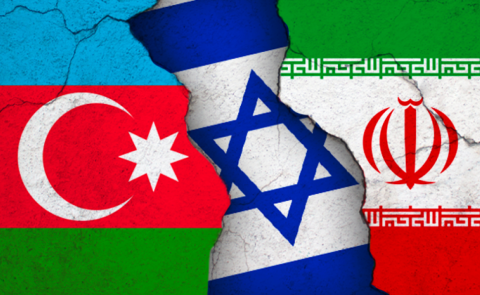
Azerbaijan Calls for 'Dialogue and Diplomatic Resolution' Between Israel and Iran
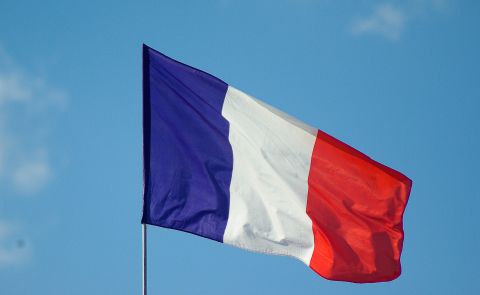
Azerbaijan and France Explore Industrial Cooperation
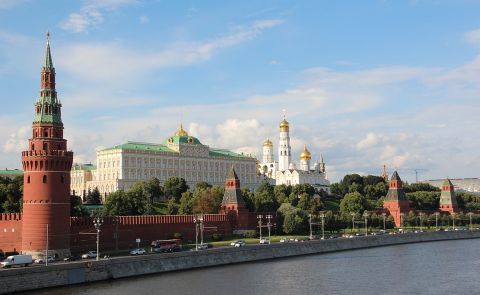
Russian Senator States Georgia Rejects Brussels’ Directives
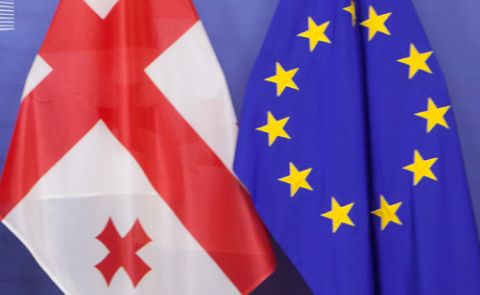
EU Ambassador Rules Out Suspension of Visa-Free Travel for Georgia

